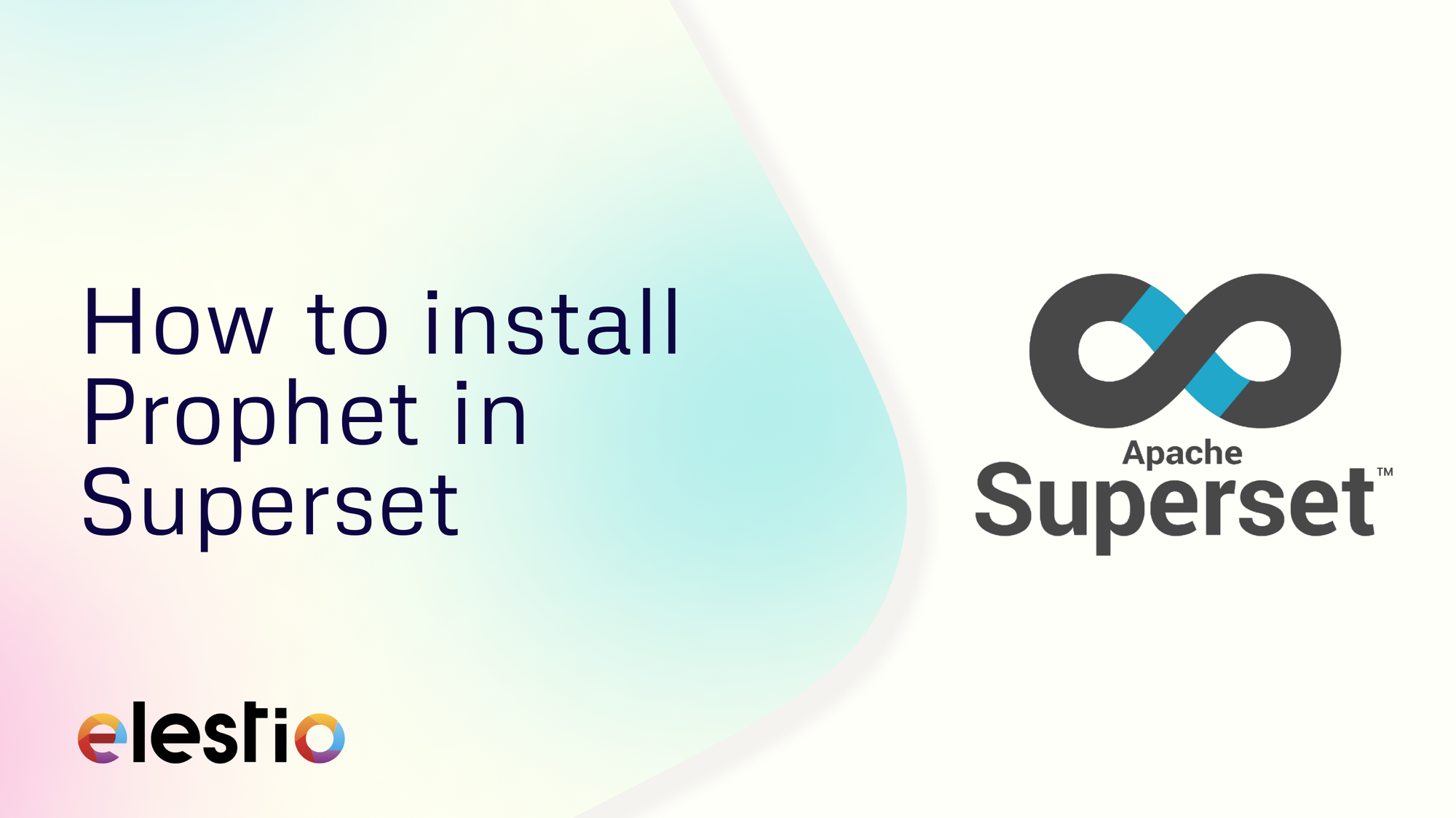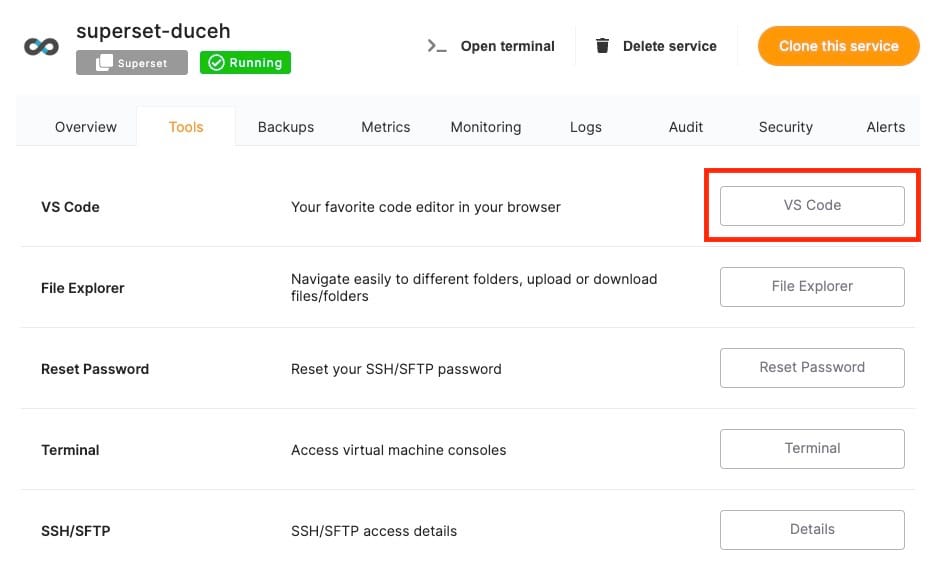How to install Prophet in Superset

Hey everyone, In this blog we will see how you can install Prophet in superset. During this tutorial, we will be using an internal terminal tool provided at Elestio Dashboard. Before we start, ensure you have deployed Superset, we will be self-hosting it on Elestio.
What is Superset?
Apache Superset is an open-source data exploration and visualization platform designed to handle data at scale. It provides a rich set of features for data analysts and business intelligence professionals, including the ability to create interactive dashboards, run complex SQL queries, and visualize data through a variety of charts and graphs. Superset integrates with a wide range of databases and data sources, allowing users to explore and analyze their data in a flexible and user-friendly environment.
Introduction to Prophet
The Prophet package developed by Facebook, is a tool for time series forecasting that is designed to handle complex, real-world datasets with ease. Prophet is built to work well with data that have strong seasonal effects and several seasons of historical data. It is designed to be highly customizable, allowing users to incorporate domain knowledge into the forecasting model through various parameters and adjustments.
Installing Prophet
Once you are logged into your Elestio dashboard and deployed, the Superset service. In the service, head over to the Superset instance and click on the Tools tab from the navigation bar. Now click on VS Code this will provide you with the credentials you need to access the terminal.

- In VS CODE, locate and open the file
requirements-local.txtsituated within thedockerdirectory. This file lists the Python packages required for your Superset instance. By appendingprophetto this file, you can ensure it will be installed the next time the Docker container is built.

- Open the terminal in VS CODE to execute the necessary Docker commands. This terminal lets you interact directly with your Docker environment from VS CODE. Execute the following commands to restart the container, ensuring that your changes to
requirements-local.txttake effect:
docker-compose downstops and removes all containers defined in yourdocker-compose.ymlfile. This ensures that any running instances of the containers are stopped before new ones are started.
docker-compose down

docker-compose up -drebuilds and starts the containers in detached mode. The-dflag stands for "detached," meaning the containers run in the background, freeing up the terminal for other tasks.
docker-compose up -d
And done! You have successfully installed Prophet in your superset instance. You can install multiple such packages.
Thanks for reading ❤️
Thank you so much for reading and do check out the Elestio resources and Official Superset documentation to learn more about Superset. You can click the button below to create your service on Elestio and install Prophet in a superset instance. See you in the next one👋

